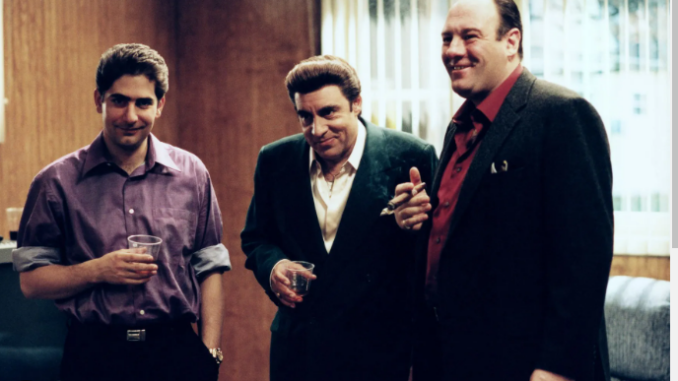
Colin Farrell knows this all too well. He plays the antihero in The Penguin, a new HBO show (on Sky Atlantic in the UK) spun off from Matt Reeves’ The Batman starring Robert Pattinson, focusing on Oz Cobb, aka The Penguin, who is constantly pestering Batman. Farrell recently told an AFP interviewer at the show’s premiere that although he drew on “everything I’ve ever read or seen about that [East Coast gangster] world” to prepare for the role, he avoided rewatching The Sopranos. “It would have confused me,” he said.
You can see why. Oz has a lot in common with the series’ big boss Tony Soprano, played with famous verve by James Gandolfini: the accent, the gangster lifestyle, the tough work ethic he can’t seem to shake, the difficult relationship with his mother, and his nostalgia for the “glory days” of righteous, honest crime in his city. The similarities haven’t gone unnoticed, with Digital Spy calling The Penguin “the spiritual Sopranos sequel we didn’t know we needed” and the Evening Standard, The Independent and The Hollywood Reporter making the comparison, among others. So it’s worth considering: how much is The Penguin really like The Sopranos?
In its context, you’d have to say quite a lot. It may exist in the Batman universe, but aside from the drugs people are taking and a slightly cartoonish scene in Arkham Asylum, The Penguin feels like it could be set in modern-day New York, or even New Jersey. It has the same mafia realism as the Sopranos, with their Italian surnames and swearing, their gelled hair, their crooked family networks and their meetings in nightclubs and other darkened rooms.
Oz and Tony Soprano also share a sensitive side. In The Sopranos, this comes through in Tony’s therapy sessions. In The Penguin, it’s Oz’s visits to his much-admired mother. Both Oz and Tony maintain complicated relationships with difficult mothers whom they still love, care for, babysit, and even dance with. But in The Penguin, Oz’s visits home are more anxious, more tender. And while Tony might dance with his mother in the kitchen, Oz gets quite emotional when he recalls how he pulled her out of a deep depression after the deaths of her brothers by taking her out for a night on the tile floor.
Of course, the comparison we’re most interested in is one of quality. Is it as good as The Sopranos? So far, no. But we’re not far off. The story is fast-paced and the world and characters are well-crafted; there’s fast action and, thankfully, it doesn’t have the emotional tension and running time that many superhero shows do. Cristin Milioti is so good as Sofia Falcone, Oz’s ally and foe, that she probably outshines Farrell. This is no mean feat, given his own acting prowess as a truly complex character.
Oz’s moral and personal nuance is at the core of why this show works. Like any great antihero—or the lead of a high-profile HBO crime drama—he lurks in a gray area. His means of crime place him in the “bad guy” category, but, like Tony Soprano, he doesn’t fit that category perfectly.
Is he a compelling character? Well, his goals are a little more singular and clear, and we don’t see him navigate the trivialities of a life of crime the way Tony did so beautifully on The Sopranos, so… not really. But that may not be the case.